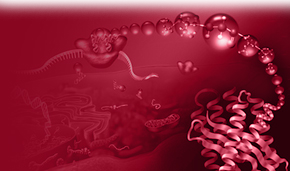|
|

|
|
Science Sparks @ ACTREC
|
 22nd November 2021 22nd November 2021 |
Vol. No. 10; Issue No. 502 |
|
|
Publications
|
|
1. Rajendra J, Ghorai A, Dutt S. 14-3-3ζ negatively regulates mitochondrial biogenesis in GBM residual cells. Heliyon. 7(11): 08371.
2. Mirgh SP, Gokarn A, Rajendra A, More A, Kamtalwar S, Katti KS, Singh A, Goli VB, Ravind R, Madala R, Kakoti S, Maitre P, Punatar S, Chichra A, Patil A, Trivedi B, Joshi A, Patkar N, Tembhare P, Khanka T, Rajpal S, Chatterjee G, Kannan S, Subramanian PG, Murthy V, Shetty N, Chavan P, Bhat V, Nair S, Khattry N, Gupta S (2021). Clinical characteristics, laboratory parameters and outcomes of COVID-19 in cancer and non-cancer patients from a tertiary Cancer Centre in India. Cancer Medicine.
3. Nair J, Syed SB, Mahaddalkar T, Ketkar M, Thorat R, Sastri Goda J, Dutt S (2021). DUSP6 regulates radio-sensitivity in glioblastoma by modulating the recruitment of p-DNAPKcs at DNA double-strand breaks. Journal of Cell Science.
4. Sawakare S, Tandon S, Pramesh CS, Gupta S, Sengar M, Ghosh-Laskar S, Nair S, Mishra G, Goel N, Patkar S, Badwe R (2021). Risk assessment of acquiring SARS-CoV-2 infection among employees of a tertiary cancer care center. Indian Jouranal of Medical Sciences.
|
|
|
|
|
|
|
Legends of Science
|

|
Palliakaranai Thirumalai Narasimhan
Palliakaranai Narasimhan obtained his Ph.D. from the IISc, Bangalore, in 1955. His research focused on absolute intensities in infrared spectroscopy, theoretical analysis of NMR spectra, quantum theory of magnetic resonance parameters. He later specialized in developing magnetic resonance microscopy as an imaging tool for biological sciences. He worked at the University of Illinois and Columbia University on the theory of nuclear spin coupling constants in 1959-61. Dr. Naransimhan served as Founder Member and Secretary of the Association of Magnetic Resonance Spectroscopists of India. He was the recipient of the Shanti Swaroop Bhatnagar Award in 1970; the J C Ghosh Memorial Medal in 1972; C V Raman Award by UGC in 1980.
|
|
| |

|
Hare Krishna Pradhan
Hare Krishna Pradhan obtained his Ph.D. from Indian Veterinary Research Institute in 1976. His specialization was in poultry diseases like infectious bronchitis, herpes virus-induced cancer, duck plague, etc. He developed new in vitro and in vivo models to study contagious bronchitis and Marek's disease. He was responsible for the development of diagnostic methodologies for highly pathogenic avian influenza. He also designed two BSL-3 laboratories for NIV, Pune, which investigate viral outbreaks in human beings. He is known as the Father of Biosafety in India. Dr. Pradhan was a member of the technical committee to establish a bone marrow transplantation and stem-cell research facility under Banaras Hindu University, Varanasi. He was a fellow of the Indian Association of Veterinary Microbiology, Immunology, and Infectious Diseases, the Indian Society of Veterinary Immunology and Immunopathology.
|
|
| |
|
|
Do You Know?
In 1975, Köhler and Milstein developed methods for producing antibodies by fusing cultured myeloma cells with normal B cells from immunized mice.
|

|
|
|
Cancer News
|
| |
|
Using T cells to target malignant brain tumors
|
|
15 November 2021, ScienceDaily
|
|
Using T cells to target malignant brain tumors. ScienceDaily, 15/11/2021.
Doctors and scientists have successfully tested a neoantigen specific transgenic immune cell therapy for malignant brain tumors for the first time using an experimental model in mice...
|
|
|
| |
|
|
|
|
|
|
| |
|
Shorter, more intensive radiation safe after surgery for prostate cancer
|
|
18 November 2021, National Cancer Institute
|
|
In a large clinical trial, people who received the shorter course of treatment, which lasted for 5 weeks, reported more bowel problems immediately following treatment than those who underwent the standard 7 weeks of less-intensive radiation...
|
|
|
|
|
© 2021 Advanced Centre for Treatment, Research and Education in Cancer (ACTREC)
|
|
